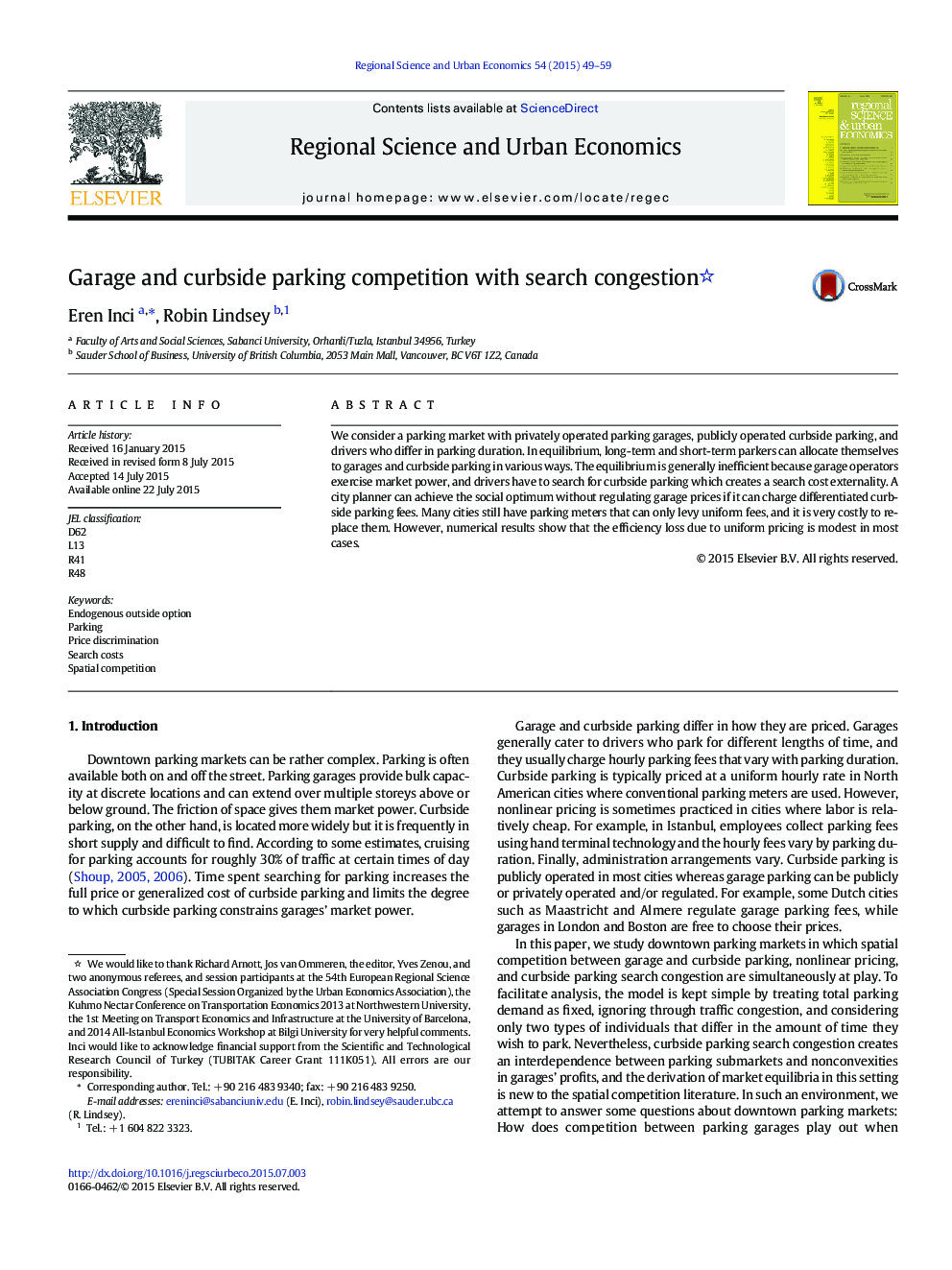| Article ID | Journal | Published Year | Pages | File Type |
|---|---|---|---|---|
| 983124 | Regional Science and Urban Economics | 2015 | 11 Pages |
•We model competition between private parking garages and public curbside parking.•Drivers encounter search costs in finding curbside parking.•Drivers differ in their parking durations, search time costs, and walking time costs.•Setting differentiated hourly curbside parking fees can support the social optimum.•Setting a uniform hourly curbside parking fee can also achieve high efficiency.
We consider a parking market with privately operated parking garages, publicly operated curbside parking, and drivers who differ in parking duration. In equilibrium, long-term and short-term parkers can allocate themselves to garages and curbside parking in various ways. The equilibrium is generally inefficient because garage operators exercise market power, and drivers have to search for curbside parking which creates a search cost externality. A city planner can achieve the social optimum without regulating garage prices if it can charge differentiated curbside parking fees. Many cities still have parking meters that can only levy uniform fees, and it is very costly to replace them. However, numerical results show that the efficiency loss due to uniform pricing is modest in most cases.
